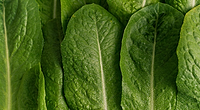Researchers Developing Tool to Help Farmers Reduce Reliance on Crop Protection Chemicals

Image credit: Mark Stebnicki via Pexels
In an effort to reduce reliance on chemical pesticides, researchers at Wageningen University and Research (WUR) are developing a tool to help farmers choose the most effective and sustainable crop protection approaches for their unique operations. The goal is to provide farmers access to an integrated crop management dashboard that will instantly display what combinations of measures they can use on their crops.
Integrated crop management involves the redesign of agricultural systems to prevent plant diseases, pests, and weeds with the most minimal use of chemicals as is possible. The strategy pieces together and optimizes measures like crop rotation sequencing, the selection of resistant crop varieties, and determining when and where to spray—the use of which can evolve over time. This method is in line with the European Farm-to-Fork strategy, which calls for a 50 percent reduction in the application of chemical crop protection agents.
WUR researchers believe such a reduction is possible, but not without growers practicing flexibility in their strategy and being willing to accept less stable yields. Hilfred Huiting, WUR crop protection researcher, shared that their trials so far have shown that integrated crop management will affect which crops are financially viable for growers in certain regions, and that there will be consequences affecting yield, quality, labor, and costs. At the same time, their trials have shown that the frequency at which crops are sprayed with chemicals could be reduced by half while maintaining acceptable levels of plant protection—which could come with beneficial environmental and public health outcomes.
For the trials, Mr. Huiting and WUR Strategic Advisor in Plant Sciences Marleen Riemens, Ph.D. are conducting an eight-year produce crop rotation with potatoes, sugar beets, onions, carrots, corn, and barley. They are focused on crop protection prioritization specific to each crop; for example, potatoes are less susceptible to weeds than other crops, and therefore weedkilling can take a backseat, but insect damage is a risk.
In the case of potatoes, aphids are controllable by introducing natural enemies, but the Colorado potato beetle is a challenge. To address a pest like the Colorado potato beetle, the researchers are testing the efficacy of a preventive approach targeting the beetles during the winters to affect their populations in the following season. The use of cameras could also be useful to identify hotspots for targeted spraying rather than indiscriminate spraying of entire fields.
Looking for a reprint of this article?
From high-res PDFs to custom plaques, order your copy today!







